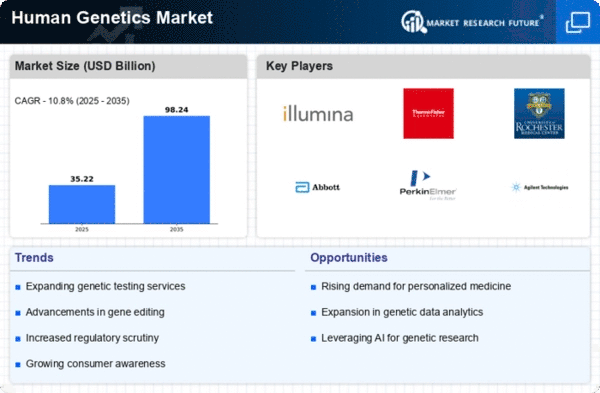Market Analysis
In-depth Analysis of Human Genetics Market Industry Landscape
Genetic testing, encompassing a variety of tests like Noninvasive Prenatal Testing (NIPT), carrier testing, pharmacogenomic testing, karyotype testing, thrombophilia testing, predictive testing, ancestry & relationship testing, and others, is gaining significant traction in Spain. The data derived from these tests serves a crucial role in studying the historical context of diseases, enabling individuals to make informed decisions about their health. Moreover, the personalized data obtained through genetic testing empowers consumers to take a proactive stance on their well-being, presenting a lucrative opportunity for market expansion. In recent times, the genetic testing market has experienced noteworthy technological advancements, primarily due to increased investment in Research and Development (R&D). The adoption of Single Nucleotide Polymorphism (SNP) chips is on the rise, given their capability to enhance the efficiency of tests. Several genetic testing providers, such as Synlab Group from Germany, are harnessing SNP array technology to detect chromosomal mutations, including microdeletions and microduplications. These technological strides are poised to further enhance the effectiveness of genetic testing in the future, thereby propelling market growth.
The diverse array of genetic tests available addresses various aspects of healthcare, contributing to a comprehensive understanding of an individual's genetic makeup. Noninvasive Prenatal Testing (NIPT) is instrumental in detecting genetic abnormalities in a developing fetus without invasive procedures, offering valuable insights into potential health concerns. Carrier testing assesses the risk of passing on genetic conditions to offspring, aiding family planning decisions. Pharmacogenomic testing explores how an individual's genes influence their response to medications, paving the way for personalized treatment plans.
Karyotype testing involves examining the structure and number of chromosomes, providing essential information about genetic disorders. Thrombophilia testing evaluates the risk of abnormal blood clotting, which can have implications for cardiovascular health. Predictive testing anticipates the likelihood of developing specific conditions, allowing individuals to take preventive measures. Ancestry and relationship testing delve into genetic heritage and familial connections, contributing to a broader understanding of one's roots.
The growing popularity of genetic testing in Spain is attributed to the increasing awareness among individuals about the potential benefits of understanding their genetic information. Making informed decisions about health, based on comprehensive genetic insights, has become a priority for many. Additionally, the proactive approach facilitated by personalized genetic data aligns with the broader trend of preventive healthcare, where individuals seek to identify and address potential health risks before they manifest.
The surge in technological advancements within the genetic testing market is propelled by substantial investments in research and development. The utilization of SNP chips, with their capacity to enhance test efficiency, signifies a significant breakthrough. Providers like Synlab Group leveraging SNP array technology for detecting chromosomal mutations exemplify the practical application of these advancements in genetic testing.
As technology continues to evolve, it is anticipated that genetic testing will become even more effective, offering deeper insights into individual health profiles. This trajectory aligns with the broader paradigm shift towards precision medicine, where treatment plans are tailored to an individual's genetic makeup. The increasing adoption of genetic testing in Spain and the ongoing technological innovations in the field position the market for continued growth and prominence in the healthcare landscape.


















Leave a Comment